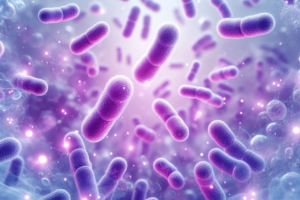Dry skin is an uncomfortable condition which is marked by scaling, itching and cracking. It can occur for multiple reasons. One can have dry skin naturally. But even if your skin is oily, one can develop dry skin from time to time
Dry skin can affect any part of your body. It very commonly affects arms, hands, and legs. In many of the cases, lifestyle changes and over-the-counter moisturizers may be what is needed to treat it.
Types of Dry skin
Although dry skin is not permanent, there are types of dry skin that could last for long years. If it lasts longer, it can be one of these types as follows:
- Eczema (atopic dermatitis) : If one has red, dry and itchy parts on the skin, one could be suffering from eczema. This can also result in skin cracking. This skin condition can be genetic also but few things like allergens, stress and other irritants can also make it worse.
- Athlete’s foot: If the foot feels dry, it could actually be the athlete’s foot. This condition, which results from a fungus, can make the soles of your feet dry and flaky.
- Contact dermatitis : Sometimes things that touch your skin can cause an allergic reaction. Your skin can also get dry, itchy, and also turn red. Also one can get rash. The reasons can be makeup products, medications, detergents and metal jewelry.
- Seborrheic dermatitis : When the scalp is too dry, you can get dandruff. You might have dry, flaky skin on your legs, groin, face, ears, or near your belly button, too.
What causes dry skin?
Dry skin is a skin type that often can occur when the body is not able to produce enough of natural oils which ultimately results in itchiness, flakiness, redness and also increased incidence of dermatitis, psoriasis, and eczema. Here are a few factors to keep in mind if your skin has been dry and dehydrated lately::
- Heat- Hot, dry, and windy conditions increase evaporation, thus removing the available moisture from air. When air around us contains less moisture, there is very less water available for your skin to absorb and use. Keeping a humidifier in your home can help to add more moisture back into the air, helping your skin to stay more hydrated.
- Hot water– As relaxing the hot water bath can be, it may be drying out your skin. Too much of a hot water bath or shower can remove all the moisture from your skin by stripping away the natural oils that work to lock in hydration. This can be avoided by after taking shower or bath, immediately apply oil, lotion or body balm to help lock moisture into your skin.
- Use of fragrances and chemicals- Harsh ingredients like synthetic fragrances and chemicals can be responsible to strip off moisture from your skin, even if their intended purpose is to just create a moisturizing effect.
Symptoms of dry skin
- Flaky or rough texture of skin
- Infections
- Peeling skin
- Excessive itchiness
- Skin burns or stings
How to prevent dry skin?
Very simple lifestyle changes can sometimes help to prevent and relieve dry skin.
- Apply moisturizer immediately after bathing or showering
- Avoid itching or scrubbing dry patches
- Use of humidifier in your home
- Drink plenty of water
- Pat, rather than rub, wet skin dry with a soft towel
- Keep your shower time to less than 10 minutes
- Shower every other day instead of every day
Treatment for dry skin
1.Moisturize daily- Use of moisturizers, ointments, creams helps to improve the skin’s natural barrier function, which promotes water retention. Gentle, face-friendly moisturizers often contain best nutraceuticals products in india:
- Hyaluronic acid
- Ceramides
- Colloidal oatmeal
Some may also prefer natural moisturizers for natural remedies to helprelieve dry skin on the face. These include:
- Pure aloe vera gel
- Coconut oil
- Shea butter
2.Use of gentle cleanser- use of soaps that contain fragrances, colors and other chemicals can cause irritation and result in skin drying out. Ingredients to avoid includes:
- Sodium lauryl sulfate (SLS)
- Diethanolamine (DEA)
- Monoethanolamine (MEA)
- Triethanolamine (TEA)
3.Exfoliate to remove excess dry skin- The skin continuously makes new cells and shields old cells. When dead skin cells become stuck on the surface, people may notice dry patches and clogged pores. Methods for exfoliation are mechanical exfoliation, chemical exfoliation.
4.Practice better bathing habits- it is best to use warm, not hot, water when bathing or washing the face because hot water can strip the skin of its natural oils. After bathing or washing the face, one should immediately apply moisturizer to help lock in moisture.
5. Use of humidifier- constantly running AC and central heating units indoors removes moisture from the air and the skin. A person with dry facial skin may wish to try limiting their use of AC and heating or start using a humidifier to add some moisture to the air indoors.
6.Medication- A skin care specialist, known as a dermatologist, or another healthcare professional may prescribe topical ointment or cream for people who are suffering from skin conditions or those who have dehydrated skin that does not respond to conventional treatments.
Summary
Many factors such as environmental and lifestyle factors can contribute to the development of dry skin on the face. People can manage and also prevent dry skin on this part of the body by using gentle treatments and home remedies. If the condition worsens, the person can consult doctors or dermatologists. People with dry skin that does not respond to OTC treatments or other home remedies may benefit from using a prescription-strength cream or ointment.
Reference:
- https://www.healthline.com/
health/dry-skin - https://www.health.harvard.
edu/staying-healthy/9-ways-to- banish-dry-skin - Hashizume H. Skin aging and dry skin. The Journal of dermatology.
- https://linnebotanicals.com/
es/blogs/blog/the-best-skin- care-routine-for-dry-skin-in-2022 - Proksch E, Berardesca E, Misery L, Engblom J, Bouwstra J. Dry skin management: practical approach in light of latest research on skin structure and function. Journal of Dermatological Treatment.
- https://www.medicalnewstoday.
com/articles/324935 - Andriessen A. Prevention, recognition and treatment of dry skin conditions. British Journal of Nursing.







